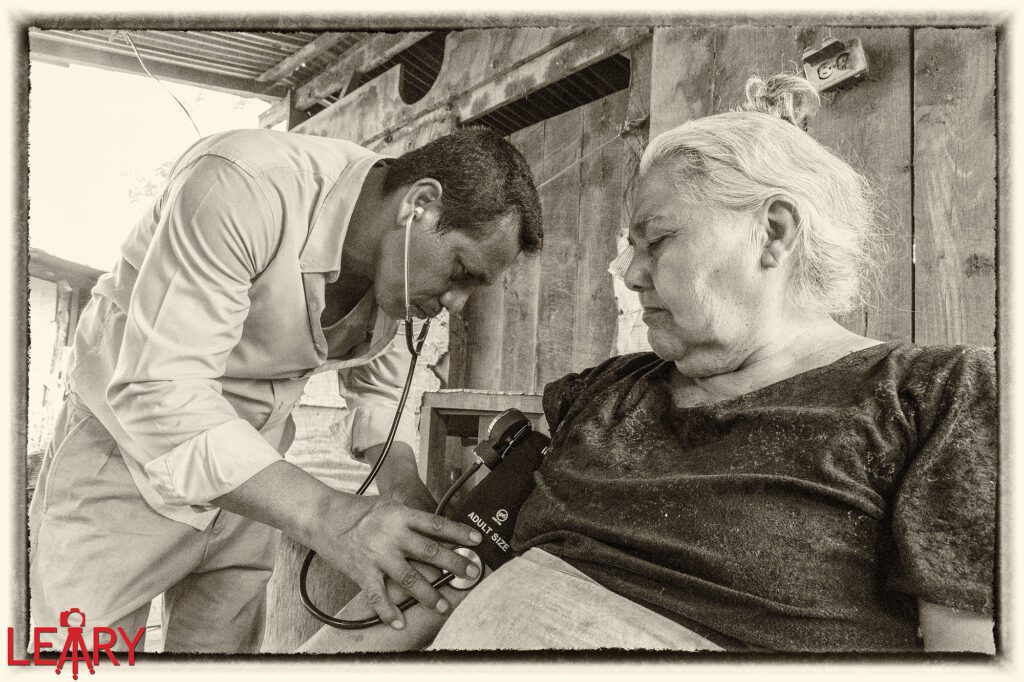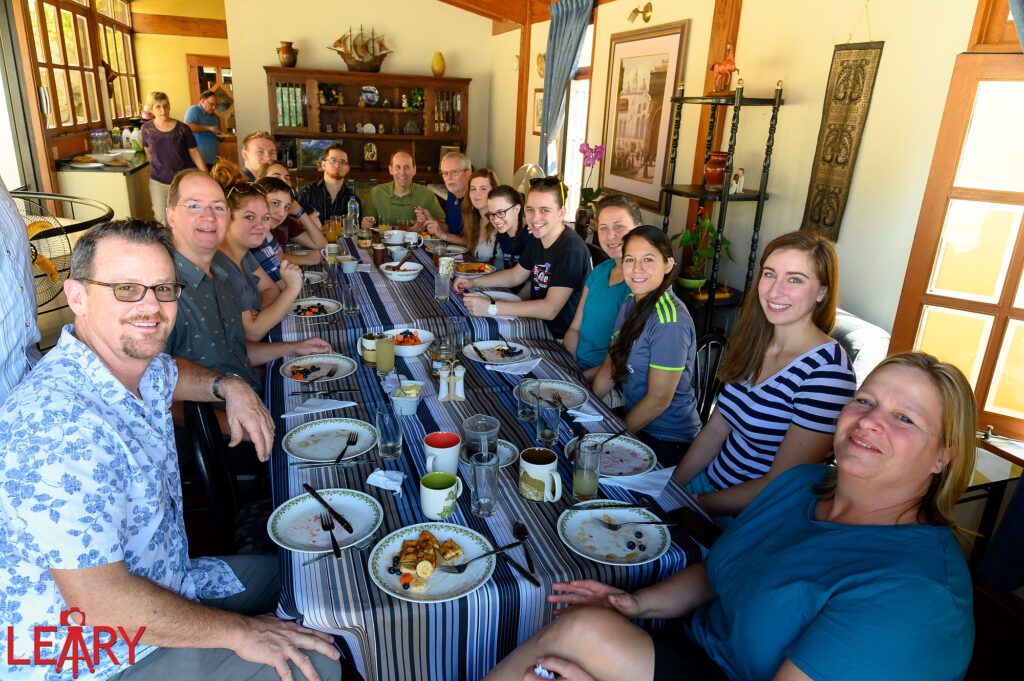When we first start to work, sooner or later, most of us hear from our bosses, “That’s not YOUR job.”
The other mistake we make is when we push back and say, “That’s not MY job.”

We soon learn that the person paying us determines our role. That is why virtually every good job description has, or should have, a clause that reads, “Other duties as assigned.”
If you don’t like what they are asking you to do, you have two choices; 1) comply, or 2) quit.
Many of us then dream of being our boss one day. When you become your boss, you join 54 million other people who enjoy the flexibility and perks of working independently. However, it is a mistake to think you have no boss.
Your boss, in many ways, becomes the customer/client. Following the money trail will reveal who you must please to earn a living.
You are always in control. You choose what you will and want to do. Sometimes quitting is necessary. Sometimes entrepreneurs fire clients.

Missionaries & Nonprofits
When you go to supporters and raise funds, you tell them what you will do with their money. You must be ethical in your fundraising. It would help if you were transparent. There are even laws about where you spend that money.
Churches define missions and ministry differently. They are not interchangeable.
Missions are about being outwardly focused. This is all about reaching out to those outside the church and bringing them inside the church to be members.
Ministry is all about being inwardly focused. This is all the programming you do for your members. Bible study, choir programs, worship services, and small groups are just a few things you do for your members.
No matter what you are doing, you must be clear about the funds being raised.
While I will talk mainly about missionaries, it applies in many ways to any nonprofit.
The very first missionary of the church was the Apostle Paul. He went to a new community and spoke to them about Jesus. Many believed that once there was a core group, Paul moved on. He had accomplished his mission.

Those local groups of Christians may have Paul come back and speak occasionally, but for the most part, his goal was to tell enough people about Jesus and form a group that would become a church.
Those who supported Paul were supporting him in that process. They were not helping him to become a pastor of that local group of believers.
Today, many missionaries struggle with what I call the grey area. What is the difference between, say, a pastor and a missionary?
Follow the money is how often this is distinguished. If a local group pays you, you are doing ministry most of the time. However, if a group delivers you from a different location, you are most likely doing missions.
It is about establishing a process to fund you.
I find many missionaries need to be told, “That’s not your job!” The sad thing to me is there are many ‘missionaries’ who lack accountability to their supporters. They are so far removed that seldom are their held accountable. I often comment that some of these missionaries could never survive back home.
When a person wants to be a missionary, they have two choices. To become an employee of a mission agency or to raise their funds. If they are employees, the organization monitors them and even visits them on the field.
So many who raise their funds lack clarity of their job role regarding their funding.
Over and over, I work with mission teams overseas. I ask how I can help with their marketing pieces. Often they bring up ideas that are not about the supporters supporting them to do missions.
People who support missionaries are giving to have them do like Paul. They offer to pay for his living expenses and materials needed to carry out his role as a missionary. They are not giving money to pay a local pastor through them.
The local congregation, for the most part, relies on their people to give to build a building. People from outside may want to give to the building fund, but this is the exception, not the rule.
Now supporters will help build a church building, a hospital, and even a school to support missionaries. A missionary lives in a small apartment with their family and needs a meeting place to host people. That is often where supporters will help them “get started,” but once they have a small congregation, most supporters see that as the locals now doing the same thing, they are expected to do in their local churches. It is called growing up.
Most working professional communicators talk about how often people come to them wanting a brochure. A good communicator will ask questions like this:
- Why do you need the brochure?
- What is the brochure going to help you to accomplish?
A few questions in, and most communicators uncover a total lack of a strategy.
Strategy is an overarching plan or set of goals. Changing strategies is like turning around an aircraft carrier—it can be done but not quickly. Tactics are the specific actions or steps you undertake to accomplish your strategy.
A brochure is a tactic
While working for the International Mission Board during the 1980s, the president was Keith Parks. The biggest thing Parks did was to have the organization revisit its purpose.
Like the Coke commercial in 1985, “I’d like to buy the world a Coke,” Keith Parks wanted to teach the world about Jesus by 2000.
This would change their tactics. With the help of David B. Barrett, who wrote the “World Christian Encyclopedia,” they came up with a formula. The missionaries could move on when they had more than 2% of Christians. The local congregations should have the resources to reach out to their communities.
Parks realized too many of their “missionaries” lost sight of their call. They were living in places that had enough churches. They were sending out their missionaries.
They started pulling people from places they said had reached their goal and moving them to areas unreached.
There was a lot of pushback because these missionaries loved their lifestyles. Not much different than their supporters. They were acting as pastors of large congregations. They were no longer outwardly focused.

What prompted this blog post
For the past several years, I have been visiting the locations where we would be doing Storytelling workshops. On each visit, we met with the local missionary team to see what they needed help with and who would make for good stories to communicate their needs.
Every time, at least one person wanted us to do a story on a local person or project, who had nothing to do with what supporters give money. One missionary wanted to tell a story of a congregation pastor who wished to cash to add to their building.
This would be like Paul saying to his supporters to give money for a group of believers to call a pastor. That is about being inwardly focused and doing ministry and not outwardly focused missions.
If the missionary wants help to tell a story of a deaf community of nonbelievers and they need money to start a school to teach braille, then that is their role. Missionaries are not funded raisers for local congregations.
When asking supporters for money
Always know your role and what you are asking people to support. Be sure you have clarity in this process.
With nonprofits, you need to know the purpose of your nonprofit. You need to know your role within that nonprofit. You also need to know when you reach your goal, your nonprofit needs to close down or find a new vision.
Say your nonprofit is putting in wells to help people have safe drinking water worldwide. That goal most likely will never be reached.
If you are to help eradicate Guinea worms around the world, then you might be very close to reaching that goal. The Carter Center has that as one of its objectives. I think they only lack Ghana in the world to finish.
Fundraising works when you communicate a need to a supporter. Seldom do supporters give to wants.

